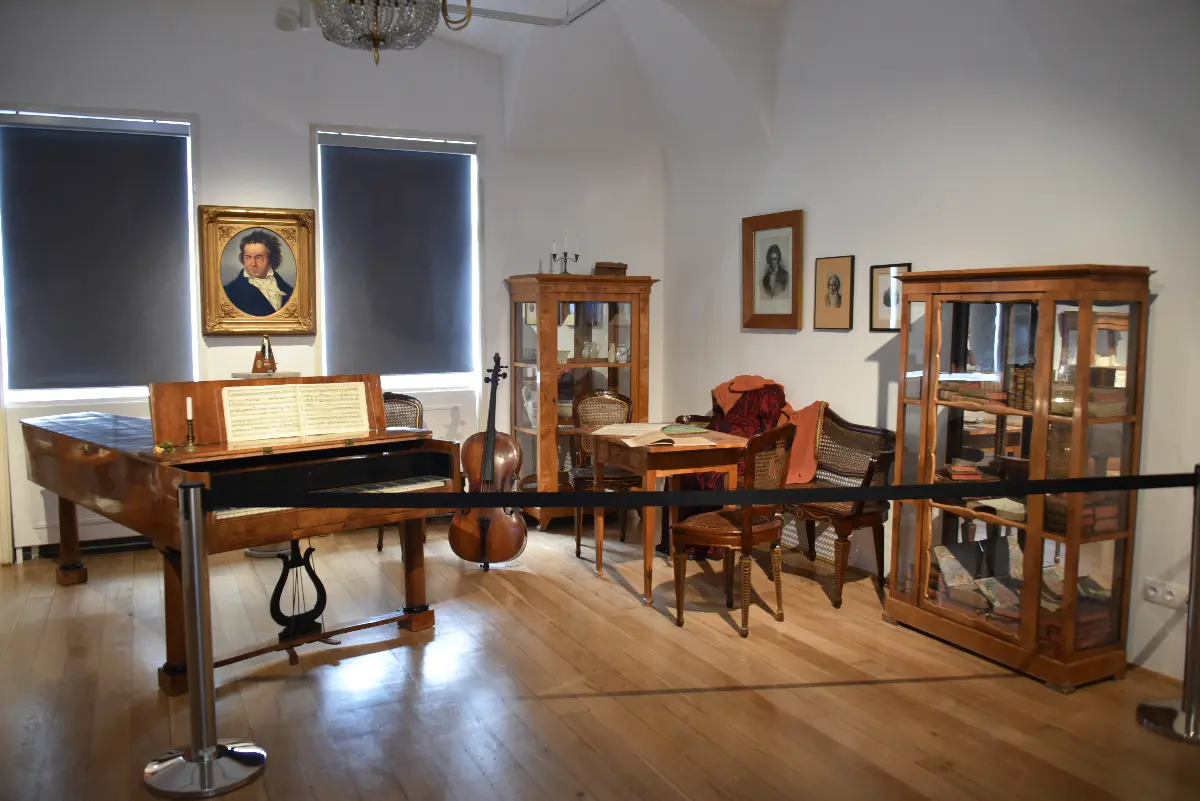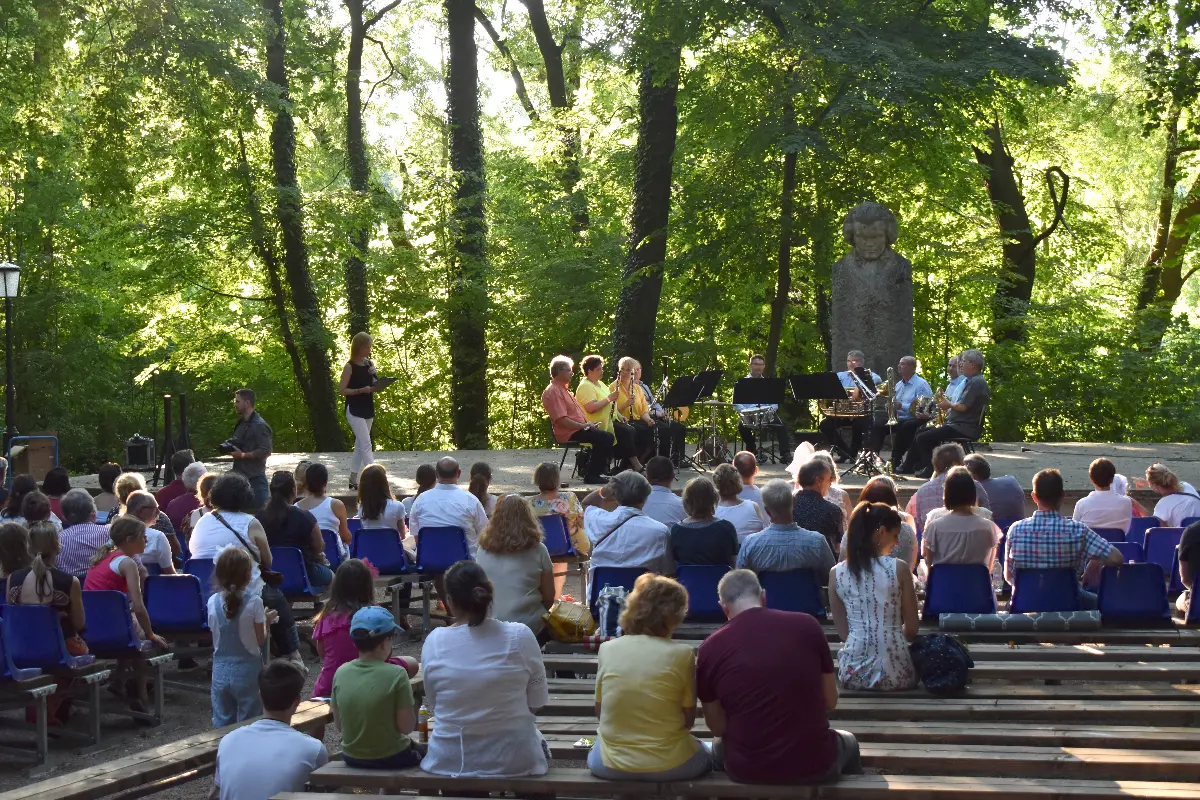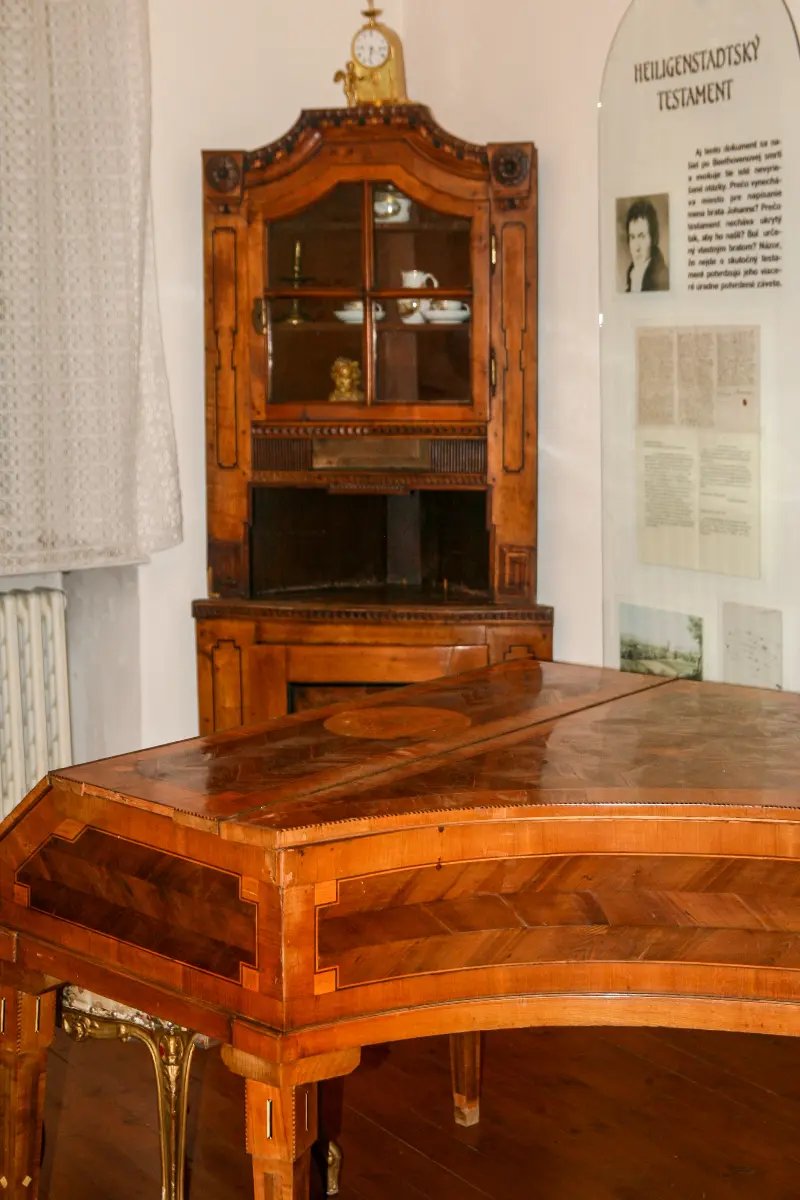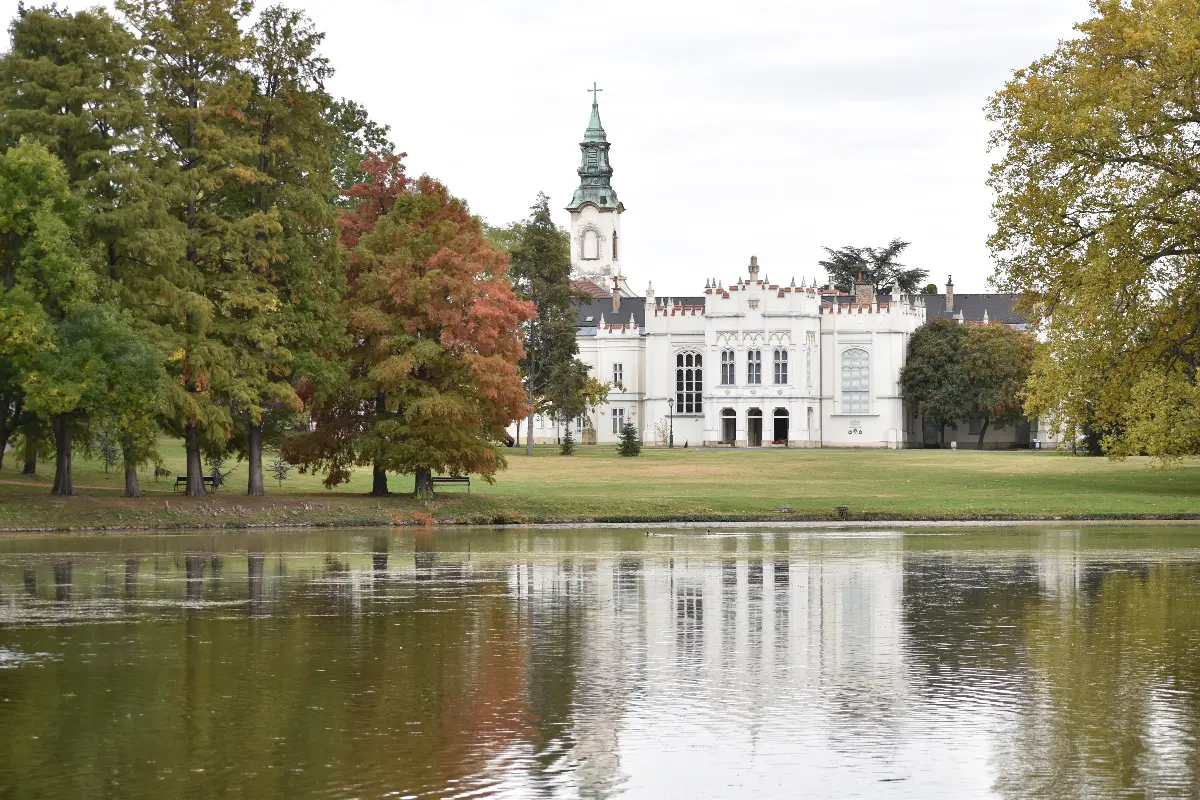
Helyszín címkék:
Why was Martonvásár selected as home to the Beethoven Museum?
Bóday Csilla
One of the most mysterious love stories of the 18th century was definitely linked to the beautiful Countess Josephine Brunszvik. Beethoven was head over heels in love with her, but Josephine married Count Joseph Deym and moved to Vienna. Whether there was actually a love affair between Beethoven and Josephine, you will see if you follow the thematic exhibition which was renewed and refreshed in 2020 for the 250th anniversary of Beethoven’s birth. Virtual reality takes you on a tour around the manor where you can even meet Beethoven himself while learning about the history of the castle and the Brunszvik family. The exhibition includes items like the locket with a lock of hair from Beethoven inside it, the Streicher piano from 1829 which was used by Franz Liszt in 1846. Exciting interactive games help you decode the musical messages sent by the composer to members of the family, and if you find all the clues, you will even discover who Beethoven’s ‘Immortal Beloved’ was. This title has so far been associated with six different women by historians since the series of letters that was written to her were found after Beethoven’s death in a secret compartment and these bore no address or date.
Beethoven and the Brunszvik family

The wife of Count Antal Brunszvik Jr, Anna Seeberg met the young and already-famous composer in 1795. She managed to persuade him to give piano lessons to her daughters, who lived in Vienna. They met for sixteen lessons which is commemorated by the poem ‘I think of you’ recorded in the memorial albums also on display in the museum. The artist also met Ferenc Brunszvik who managed to secure him a spot to perform at the concert held in the Castle Theatre in Buda in honour of Alexandra Pavlovna. On the occasion of this performance, Beethoven was invited to the Brunszvik Manor in Martonvásár, and this was here where Beethoven’s friendship with Ferenc and the older daughter, Theresa became stronger. Ferenc was an important catalyst in creating close ties between the composer and Hungarian theatre as a consequence of which Beethoven composed the music for the works ‘King Stephen, or the first benefactor of the Hungarians’ and the ‘Ruins of Athens’, both dedicated to the people of Hungary. The friendship between Beethoven and Ferenc lasted until the Maestro’s death. Beethoven started corresponding with the older countess after his visit to Martonvásár. He admired her knowledge of the world, music, her talent as a piano player and her efforts in the field of social responsibility. As an expression of his admiration he dedicated his Piano Sonata No. 78 in F sharp major to Theresa. While the composer had platonic feelings for Theresa, he offered his heart to the younger countess, Josephine. Though their love could not end in a marriage, the bond between them lasted a lifetime.

Ludwig van Beethoven
His parents tried to force young Beethoven to become a child prodigy. His unsuccessful court musician father used beatings to inspire little Ludwig to be a breadwinner already at a young age just like Mozart was. Despite the fact that his childhood was not a happy one, he soon came to sustain his family. Though his drunkard and violent father never discovered how talented the little boy way, others did, and so at the age of thirteen he became the breadwinner of the family. His first patron was Christian Gottlob Neefe who helped him earn money from the prince-elector, and later on he was sponsored by Count Waldstein. He only gave his first concert as an individual pianist in Vienna in 1795 where he performed the Piano Concerto in B-flat major. The ensuing series of concerts brought him much-coveted success, so he found more patrons and a publisher as well. He first became famous as a pianist, and then as a composer. He held many concerts around Vienna. Later, as his health started to fail, his artistic tours became less and less frequent. He travelled very little due to the pains in his stomach and ear. In the end, he went profoundly deaf. According to recent studies, he died of lead poisoning. Today, he is considered to be one of the three most influential composers of the First Viennese School with Haydn and Mozart, while his music also bears the characteristics of Romanticism. After his death, he became an important role model for many composers all through the history of music.






